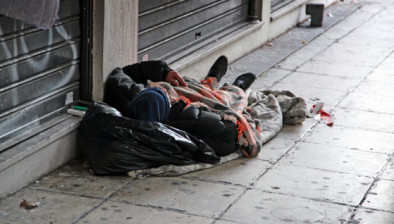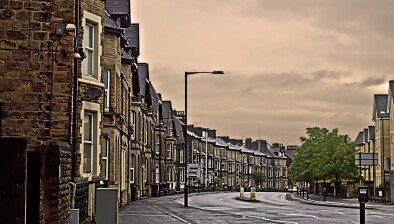Fears for Scotland’s future success in tackling homelessness
 Scotland’s ambitions to tackle homelessness are under threat according to a new report published today by national homelessness charity Crisis and the Joseph Rowntree Foundation.
Scotland’s ambitions to tackle homelessness are under threat according to a new report published today by national homelessness charity Crisis and the Joseph Rowntree Foundation.
The report shows 28,615 homelessness assessments by councils last year – a fall of 5 per cent on the previous year. However, taking into account use of Housing Options services, the overall level of homelessness demand remains steady at around 54,000 presentations, while the number of households in temporary accommodation remains in the range of 10-11,000 at any one time.
The findings are from state-of-the nation report The Homelessness Monitor: Scotland 2015 – an independent study commissioned by Crisis and funded by Crisis and the Joseph Rowntree Foundation tracking the impact of economic and policy developments on homelessness in Scotland.
The report reveals how homeless people are being forced to spend more and more time in temporary housing due to pressure on the supply of affordable homes, rising demand and cuts to benefits.
The introduction of the prevention approach known as ‘Housing Options’ created a major opportunity to intervene at an earlier stage and tackle homelessness before people get into crisis, but caused controversy. The report raises concerns that some councils were using Housing Options to deny people their statutory rights, limiting assistance to just signposting to other services.
Glasgow continues to face exceptional challenges from the unusually high numbers of people with complex needs sleeping rough in the city combined with a shortage of temporary accommodation for single men.
Jon Sparkes, chief executive of Crisis, said: “The Scottish Government has blazed a trail when it comes to tackling homelessness, but there’s no room for complacency.
“We’re calling for a new cross-departmental strategy to tackle homelessness and strengthen the role of prevention and early intervention, particularly for those affected by changes to the welfare system, and boost support for the hardest to help. More needs to be done to support young homeless people, who are at particular risk from welfare cuts, while the proportion of people who are homeless and have complex needs such as mental health problems and substance dependency appears to be growing.
“We also need action to ensure that by the end of the next Parliament, no one should live in unsuitable temporary accommodation, particularly B&Bs, for more than 14 days.”
Julia Unwin, chief executive of JRF, said: “Getting to grips with the housing crisis is key to driving down homelessness, so Scotland’s commitment to building much needed, genuinely affordable homes of all tenures is extremely welcome. However, building new homes takes time. JRF supports the UK government’s long-term aim of a higher pay economy with lower need for welfare, but reducing benefits before new homes are built and higher wages have the chance to plug the gap will leave many low-income households struggling to make ends meet.”
Lead author, Professor Suzanne Fitzpatrick, said: “There is a lot to praise in Scotland when it comes to tackling homelessness. The Scottish Government’s renewed focus on homelessness and health, alongside improved protection and entitlements for young care leavers and the Scottish Welfare Fund are all very positive recent developments.
“But the threat posed by welfare cuts and benefit sanctions – especially for young people – is very real, and risks undoing much of this progress.”
Key findings:







